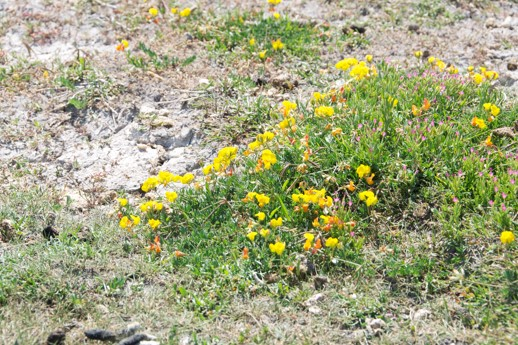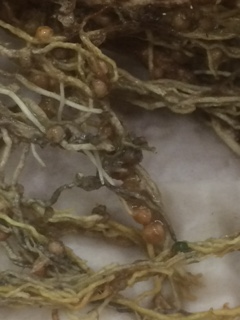|
Abstract
Background: Plant-microbe associations harbor multiple beneficial effects for both the plants and associated microbiota (Berendsen
et al. 2012). Such associations are also recognized for halophytic plants and suggested to help the plants to sustain these stressful environments (Yuan
et al. 2016). However, much in this association is still unknown with limited information on the bi-directional influence of the plant and its microbiome, as studies often focus on either the plant or the microbiota.
Aims: Preliminary data of halophytic plants inhabiting saline soils in Eastern Austria revealed plant-specific microbiomes and growth-promoting effects of the associated natural microbiome. We hypothesize that besides the plant’s inherent ability to acclimate to extreme conditions, the associated microbial community is vital for the plant’s success in a high-salt and low-nutrient environment. The projects aim to reveal the microbiome of halophytes, the effects of plant-microbiota association on the plant’s performance under different stress situations, and the interaction modes between the plant and its microbiota.
Approach: We will investigate the microbiome of two different halophytic plants (Lotus tenuis (Legume), PhD student I, and Lepidium cartilagineum (Brassica), PhD student II) that inhabit saline soils in Eastern Austria combining 16S rRNA gene (bacteria and archaea) and ITS (fungi) amplicon sequencing, single-cell imaging and cultivation. Our experimental setup will include plant growth at two salt concentrations (high original and low-levels (500 vs 50 Mm NaCl)), as well as water logging versus drought conditions. The plant-microbiome effect on plant performance will be analyzed by plant-phenotyping, comparing growth in sterile versus untreated (natural) soil. We will test the effect of specific root-associated microbial groups (such as nitrogen-fixing Rhizobium strains) on the association of other microorganisms (Zgadzaj
et al. 2016) and plant seeds for potential endogenous, seed born, endophytes (Shahzad et al. 2018). The microbiome’s function will be investigated by metagenome and -transcriptome sequencing, which will be integrated with the plant’s secretion metabolism by analyzing its root exudate and peptidome pool using mass spectrometry. This will allow a functional characterization of the molecules (peptides as well as primary- and secondary metabolites) involved in the plant’s microbiome control (attraction, avoidance).
Relevance: Investigations of halophytic plants and their microbiome often focus on either the plant or the microbiota, despite the appreciation of the bi-directional influence in the plant-microbiome association. These PhD projects will reveal the interactions within the halophyte-microbe association and the potential benefits for host plants.
PIs:
Dagmar Woebken - microbes
Stefanie Wienkoop - plants
|
 Lotus tenuis
Lotus tenuis small root nodules of Lotus tenuis
small root nodules of Lotus tenuis
